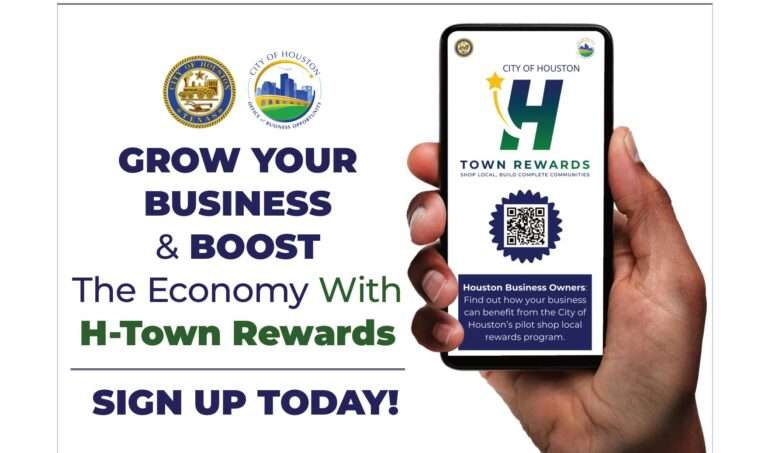“My role is to guide people through the process of cultivating and owning a successful tax service.”
In the heart of Houston, communities grappling with low-income, and poverty face distinctive challenges during tax season. Filing taxes and securing refunds becomes a formidable task due to limited access to financial resources and professional assistance. Residents in these areas may encounter difficulties in navigating the complexities of the tax code, potentially resulting in missed opportunities for refunds and credits, given the lack of financial literacy.
The struggle intensifies as affordable and accessible tax preparation services are scarce, exacerbating the challenges faced by community members. This scarcity may prevent individuals from fully leveraging available deductions or credits, impacting their overall financial well-being. Factors such as language barriers, limited internet access, and unfamiliarity with tax laws contribute to the pervasive difficulties experienced by many residents.
During an interview with Elfrin Patten, the owner and founder of E. Patten Tax, he sheds light on his passion for this profession and how entrepreneurship has shaped his vision for the future. E. Patten Tax serves as a catalyst for empowering individuals to establish and operate their own tax preparation businesses. By elucidating the lucrative opportunities inherent in the industry and underscoring the financial potential, the platform encourages individuals to embark on a rewarding entrepreneurial journey. Patten provides essential insights and guidance, enabling others to navigate the intricacies of the tax preparation business and capitalize on its financial benefits.
“By showcasing the lucrative opportunities within the industry and emphasizing the financial potential, individuals are motivated to embark on this rewarding venture,” he said. “Ultimately, I provide valuable insights and teachings to enable others to navigate the tax preparation business landscape and capitalize on the financial benefits it offers.”
Getting to Know Patten and His Road to Entrepreneurship
On Choosing a Career in Tax Preparation:
I entered this field unintentionally, but as I delved deeper, my appreciation for it grew. I realized the significant impact one can have on people’s lives during a specific period while simultaneously earning income. It became evident that this profession provides the flexibility to pursue personal interests, given its seasonal nature, allowing for an extended period of downtime throughout the rest of the year.
On Career Sustainability in the Tax Profession:
I have a decade of experience in this field, and each year, I see progression. Individuals who stay updated and resilient also experience annual growth. Staying informed about new forms and tax laws is akin to ongoing education—it’s accessible to anyone willing to learn. Consistent learning leads to mastery in the field, much like acquiring knowledge through formal education.
On Liking Versus Loving His Field:
I initially enjoyed it, even loved it, but now I find myself back at a stage of liking. It’s reminiscent of a roller coaster ride—embracing the entrepreneurial journey, meeting and conversing with people, acquiring knowledge, and enjoying the financial rewards. However, as the business expands, challenges emerge. It’s a test of mental strength, and if you’re not adequately prepared, it might seem unexpected and overwhelming.
According to a study by News Gallup, two in three small-business owners (67%) are satisfied with their ability to achieve a positive work-life balance. And a similar percentage (65%) feel they can make the time available outside work to do the things that are most important to them.
However, Patten sees it differently for himself. “As your client base expands, you encounter a diverse array of personalities and characters. Dealing with financial matters often leads to people becoming upset and making accusations.”
In terms of taxes, many tax businesses operate offices in lower-income neighborhoods. What are your thoughts on this practice, particularly concerning your business in the city of Houston?
The rationale behind this is that in affluent neighborhoods where residents earn substantial incomes, many individuals already have Certified Public Accountants (CPAs). On the other hand, in lower-income neighborhoods, there tend to be tax preparers who specialize in tax preparation without the need for a CPA. The choice often depends on the financial landscape of each area.
On Addressing the Perceptions Surrounding the Placement of Tax Preparatory Offices in Specific City Areas:
I don’t anticipate that changing because, generally, when individuals reach a certain income level and engage in complex financial activities like property ownership and investments, they often seek the expertise of certified public accountants (CPAs). In high-income communities, people frequently have more intricate financial situations, prompting the need for specialized assistance beyond what a regular tax preparer may offer.
Do you believe there’s a negative impact on the Black community, or Black and Brown communities, when they encounter stereotypes or frustration while attempting to complete their taxes, particularly when expecting significant returns or desiring a prompt refund? Are there strategies to enhance a sense of calm or security in such situations?
To address these challenges, fostering a more inclusive and culturally sensitive environment within tax preparatory offices is crucial. Implementing diversity training for tax professionals, ensuring representation within the industry, and actively dispelling stereotypes can contribute to a more positive experience. Additionally, providing educational resources to clients about the tax process, potential delays, and realistic expectations can help manage anticipations and reduce frustrations. So, there’s really nothing we probably could do to change that because it’s still going to happen continuously.
As a business owner, would you find it more reassuring to operate in communities where there is a strong desire for your success compared to affluent neighborhoods?
As a business owner, operating in communities where there is a strong desire for success provides a sense of connection and support. These communities often appreciate and value local businesses, fostering a positive environment that can contribute to the long-term success and growth of the business.
Can you share some challenges or drawbacks you’ve observed while operating your business in black communities, brown communities, or lower-income neighborhoods?
The challenge of operating in low-income communities isn’t exactly a downfall. It primarily involves managing individuals who are eager to receive their tax refunds. Occasionally, emotions can run higher than usual, as some people anticipate this moment for an entire year, with accumulated bills and pressures. The key aspect is effectively dealing with everyone’s unique situation.
“I want people to be motivated to manage their money better throughout the year.”
On Tips to Be Aware of Your Money:
The approach varies based on one’s lifestyle. It’s essential to align spending with what’s affordable, recognizing that everyone has financial obligations and bills to address. The key lies in effective money management and navigating the balance between expenses and income. How urgently someone anticipates their tax return often depends on their financial situation – some individuals may feel a sense of urgency, while others may choose a more relaxed approach, patiently awaiting the return without excessive stress.
How do you cultivate empathy and sympathy in your role, turning the act of tax preparation into a form of public service where you can connect with individuals, even if their situations differ from your own, and experience a genuine human connection with those in need?
I see a lot of single mothers with children that need the most help. I take the time to build personal connections with my clients, delving into their individual experiences and challenges. By understanding their personal situations, I can offer more tailored assistance through specific tax forms. Establishing a personal connection makes me more committed to working diligently for them. When I know my clients on a personal level and can relate to their current struggles, it motivates me to provide extensive support, allowing me to assist a broader range of people compared to others in my field.
On Customers Missing Out on Further Earnings:
Certainly, some individuals may have diverse financial situations, presenting a range of forms and scenarios during tax preparation. For instance, someone may approach with multiple forms related to paying interest, having insurance, receiving unemployment benefits, or having children in college. Each of these forms may have specific considerations, and without the proper understanding, one might miss out on potential benefits.
As an example, during the COVID pandemic, there was a particular form (though I can’t recall the name off the top of my head) related to withdrawals from retirement accounts. Typically, such withdrawals are subject to taxation, but due to COVID-related relief measures, a specific code could be applied to exempt individuals from taxes on those withdrawals for that year. This exemption could be significant, saving someone from paying taxes on, say, a $3,000 withdrawal.
What key considerations or advice would you emphasize for individuals filing their taxes this year, with a focus on current and future considerations rather than past practices?
Ensure you have all your necessary documents ready before filing your taxes. Rushing the process may lead to overlooking important forms, and receiving additional documentation after filing could necessitate amendments, resulting in extra effort and potential double payments. Take your time, follow the correct procedures, and make sure you have all the required forms to avoid complications and streamline the filing process.
On Creating Better Customer Service as a Business Owner:
I do pay attention to reviews, though not always consistently. When I receive a negative review, I take the time to assess its validity. If the criticism is accurate, I acknowledge it and address the specific issues. For instance, if someone points out that I missed a personal call or forgot to email them their paperwork, I admit to it. Sometimes, with a busy schedule, I might not get around to certain tasks promptly. It’s not intentional, but it’s an area that can be improved to enhance customer service.
While I don’t take reviews personally, and I might not always learn from every single one, I don’t let a few negative reviews deter me. I believe in continuously improving my services, and constructive feedback is valuable for making those enhancements.
Patten gave further details as to how he helps to shape the careers for other prospective tax agents who start off part time and graduate to full fledge CPAs, bringing in new frontiers through technology and software to compete with other tax firms, allowing clients to file online without having to go into the office, and most importantly, the deliver of good customer service.
“Anything is possible, and change takes time,” Patten said as his motto for success in business.
E. Patten Tax Prep services are available now at 8101 Airport Blvd Suite A3, Houston, TX 77061 at 832-503-9440.









